Are you a fan of crunchy, golden brown foods that taste so incredibly good? I'm talking about food like bread, french fries, seared meat, roasted veggies, etc. Find out how these sweet, flavored foods accelerate your aging!

We all love food when it has a sweet delicious aroma. You'll agree that baked, grilled, or roasted food smells incredible, especially when it caramelizes and is crunchy; think of that pizza!
Several chemical reactions occur during cooking at high heat to obtain crunchiness and that optimum brown color.
What is Glycation?
When cooking food at high temperatures, carbohydrates bind to protein molecules, hardening the proteins in a process known as glycation.
Less known than oxidative stress, glycation has negative effects by affecting cellular functions leading to cell damage and death.
Glycation is a natural phenomenon occurring inside your body when the sugar in the bloodstream binds with proteins, fat, or DNA, producing harmful chemical compounds known as AGES. But it's also the first step to the formation of Maillard's reaction.
Maillard's reaction
Ever heard of Maillard's reaction? When food cooks at high heat, the sugar molecules bind to proteins to form a browning or caramelized effect.
Think about barbecue, biscuits, French fries, seared meat, or caramelized food. They all undergo Maillard's reaction, which gives the brown color, texture, and flavor that makes the food look more appetizing and somehow addicting!
Maillard reaction kicks in when some types of simple sugars start interacting with amino acids (proteins), creating hundreds of chemical compounds, some of which improve the aroma, while others improve texture.
Food wouldn't taste and smell so good if it weren't for this chemical reaction (even though many reactions take place during cooking).
What does that have to do with aging?
Glad that you ask;
When the browning form during cooking, the proteins modify their structures and lose their functions, forming advanced glycation end products (AGEs). There are various types of AGEs.
When you consume a lot of food with Maillard reactions, the AGEs accumulate in your body, and they're known to be responsible for various diseases.
AGEs "caramelize" the body tissues just the way the browning happens during cooking. Unfortunately, these effects are irreversible!
Glycation affects the elasticity of tissues like skin, blood vessels, and tendons. It's accelerated in case of rising blood sugar levels, oxidative stress, or inflammation.
Since there are no enzymes to reduce glycation, it's believed that with time, the accumulation of AGEs in proteins like collagen, elastin, and keratine damages the cells, which accelerates aging.

Are you consuming AGEs through food?
While AGEs form naturally in the body, food remains an important source of external AGEs.
Dietary AGEs are formed during the Maillard reaction when sugar binds to proteins.
If you are a bread or pizza eater, or you love roasting or grilling your food, then you're consuming a considerable amount of AGEs.
Cooking food at high heat, 266° F/130°C, accelerates the chemical reaction between sugars and proteins and is speeded up by cooking duration, thus forming AGEs. These AGEs are more complex than those created inside your body.
Note that the Maillard reaction starts slowly at 194°F/90°C and stops at 356°F/180°C. Beyond 356°F, other chemical reactions take over, where heat degrades food, creating more harmful AGEs chemical compounds. Classic bread is baked between 350 -475°F/180-246°C, and pizza 450-500° F/250 to 260°C.
While some dietary AGEs can be excreted out of the body through urines, studies show that large amounts of these chemicals accumulate in the body tissues and organs, leading to a heavy load of AGEs.
Glycation affects all protein cells throughout the body without any exception!
How to reduce the accumulation of AGES in the body

AGEs in the body are related to degenerative diseases, inflammation, blood circulation, renal disease, eye problems, gastrointestinal issues, and the liver.
Here are a few things you can do to reduce the accumulation of AGEs in your body and eventually reduce diseases;
- Reduce dietary exposure high in AGEs; limit consumption of browned baked, roasted, caramelized, and fried foods.
- Adapt the proper cooking temperatures; You can still enjoy your roasted foods by cooking at low temperatures. Low temperatures will take longer and not produce the same crunchy, browning results, but at least you'll reduce the formation of AGEs.
- Choose steaming, stewing, boiling, or slow cooking; These cooking methods do not create the Maillard reaction (browning) and have low levels of AGEs. Water or moisture delays the formation of these toxins.
- Pay attention to food choices; food high in fructose and carbohydrates, like potatoes and grains, will generate more AGEs during cooking, where browning occurs.
- Avoid Fructose; High-fructose sweeteners, apple juice, and fruits high in fructose can increase the formation of AGEs when these sugar molecules interact with proteins in the gastrointestinal tract (GI).
- Reduce intake of food rich in sugar; Food high in GI (Glycemic Index) will spike blood sugar. As mentioned earlier, glycation is a natural reaction inside our body. By reducing sugary food, you will lower this natural glycation.
- Eat more plant foods; Plants high in flavonoids, like blueberries, onions, grapes, garlic, some herbs, cacao, and spices, have been reported to have anti-glycation effects. Plants are also rich in antioxidants which neutralize oxidative stress and reduce the formation of AGEs. Dietary fiber can enhance the gut microbiome, which can improve health.
- Hydration; make sure to drink water regularly as it stimulates collagen tissues.
- Exercise regularly; Physical movements can improve antioxidant activity, therefore fighting oxidative stress, which in part leads to the formation of glycation internally.
- Manage stress; When you're under stress, you are more likely to eat more sugary food.
Happy reading. I look forward to your opinions on this through comments or email.
Always remember, you have got the power to heal yourself, Githu.




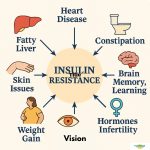
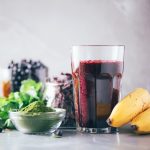
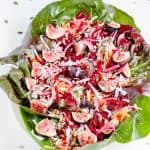

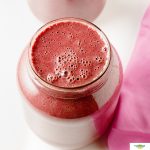

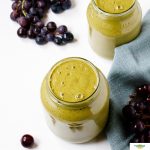


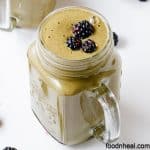




Janene
Hello Catherine,
This is really useful information. Especially when charred food is becoming trendy.
What about smoked food and smoked paprika? Are they also harmful? Many thanks.
God bless
Githu
Hi Janene, sorry for the late response. Concerning the smoked foods, I only found articles on smoked meat and fish. You can read this article
I hope that will help. Sending you my love.